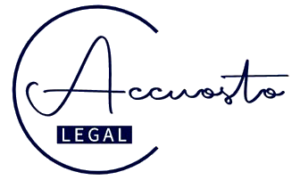IP rights at the University – Who owns what? (Part II)
4. Contracts
In this matter, although several countries have passed laws regulating ownership of results of research generated in Universities/Public Research Centres, it is advisable to conclude contracts to expressly regulate in a clear manner those intellectual property rights.
4.1. Internal contracts: researchers / Universities or Public Research Centres
(i) Research while in the workplace
University researchers usually assign intellectual property rights to the institution they work for (or work in) under a contract. As we have seen, although those contracts do not expressly establish to whom the rights are assigned, in most cases applicable legislation of the country has already decided on such assignment, with some legislation determining that such results belong to the University or Public Research Centre.
(ii) Research outside the workplace
Inventions created by the researcher entirely in his free time will not always belong to him but to the University.
Therefore, in order to determine whether such research belongs to the researcher or not, the crucial point is not the place in which it was produced (within his working hours as agreed with the University), the crucial point is if this research is part of the research/project objective for which the University contracted him, even if parts of the research are not physically conducted within the University premises or during his research hours. In other words, the deciding factor is whether the objective of his research forms part of the performance of his duties under the specific research project agreed with the university.
Therefore we can say that as a general rule the researcher will only own the research he conducts in his own spare time, if not funded by the university and unrelated to the research project objective for which he is working within the university.
(iii) Distribution of profits / royalties
The inventor (researcher) should have the right to receive a part of the profits generated by his research results (a share of royalties or licence-related fees).
However, it should be noted that this right does not exist in very legislation; where it does, it is not always clear how that share has to be determined. This is why it is very important that this aspect is clearly set out in University/Public Research Centre policies and/or in the contract between the researcher and the University.
In the United States, most intellectual property policies of Universities/institutions expressly provide and regulate this right in detail, but the same does not apply to Universities/institutions in Europe, although it is true that the tendency is to include these aspects.
We should be aware that a clear policy regarding a researcher’s share inprofits arising from exploitation of results of his research is an excellent way of motivating these researchers to continue working in such valuable industries as research, knowledge and innovation, and also an acknowledgement of his contribution and work in a research which later makes profits for the institution/company, etc.
4.2. “Internal” consequences
(i) Ownership and authorship
It is important that both aspects are clear from the beginning of the relationship so that the researcher and the University/Public Research Centre are aware of their respective rights and prerogatives.
In respect of authorship, it should be noted that the regulations of most countries (patent laws or similar) establish that the inventor has a right to have his name appear in the patent, even though in some cases he is not the owner.
(ii) The work of Technology Transfer Offices
Technology Transfer Offices of Universities/Institutions/Public Research Centres have a long history in some countries, but in others they have been implemented very recently, so there is still a long way to go in respect of consultancy, management and transfer of research results of their centres, but in any case they are doing an important job that needs to be recognized.
These Technology Transfer Offices cover a wide range of roles, all very important in the process of linking research/innovation and the market, they have an important role in bringing together the different players involved (researchers, University/Institutions/Public Research Centre and the market) who do not always “speak the same language”.
(iii) Who is responsible for addressing issues related to patents and licensing opportunities? Who registers the patent? Who is responsible for defense against possible infringements?
As a general rule, issues regarding patents and licensing opportunities are managed by the Technology Transfer Offices of the respective Universities/Public Research Centre/Institutions, assisted either by external professionals or their own legal departments.
In respect of patent registration, as already mentioned, the ownership will depend on the specific regulation of the country (ownership assigned to either the Researcher or the University) and on specific contracts concluded on subjects such as research cooperation, etc. If ownership is assigned to the University/Public Research Centre/Institution, it is usually its Technology Transfer Office who will manage registration, normally through an external patent attorney who files the application and conducts the final patent prosecution.
The owner is responsible for defense against eventual infringements, therefore if ownership is assigned to the University/Public Research Centre/Institution, their Technology Transfer Office will also be responsible for managing/co-ordinating the defense with the assistance of their internal legal departments or external professionals. Applicable laws sometimes provide that the defense against infringements may also be conducted by the licensee, if exclusive licenses have been granted.
4.3. ‘External’ contracts
Different types of contracts may be concluded, for co-operation with other institutions/companies in joint research, research funding (total or partial), or licensing contracts (exclusive/non-exclusive) in respect of the results of research, or transfer agreements.
(i) Who negotiates the contracts? Who will conclude them?
Contracts are usually negotiated by the Technology Transfer Office, who may be assisted by the legal department that Universities or Public Centres of Investigation have, or seek legal advice from external sources.
In those countries with little or no tradition of Technology Transfer Offices of University/Public Research Centres, it is common that the employees of the Technology Transfer Office lead the negotiation, even though oftentimes they lack proper legal training.
(ii) What can be transferred?
As commented earlier, depending on the country and the applicable law, research results may be licensed or transferred to third parties for exploitation in for a price that may be structured as an initial payment plus royalties based on revenues gained from the operation, royalty payments without the initial amount, a lump sum in exchange for the transfer and returns resulting from increment in value, etc. Sometimes the contracts provide that the costs of patent application are recoverable from the return obtained by the license, after those costs have been recovered the surpluses distributed between the owners; owner/researcher.
(iii) License or transfer of ownership?
Depending on the country and applicable rules, we can find regulations that allow both licensing and assignment of rights over research conducted by Public Universities or Public Research Centres to third parties, and regulations with a preference for licence over assignment of rights.
(iv) Can the researchers/inventors negotiate directly?
The answer will depend on whether or not they are the owners of the results. In those cases where the researchers/inventors are the owners, they can of course negotiate directly, but not if ownership belongs to the institution where they conducted the research, even though they are registered as inventors. In these cases, negotiations will be conducted by that institution (i.e. University/Public Research Centre), either through their Technology Transfer Office, their legal department or their external advisers.
Without prejudice to the foregoing, it is common for researchers to participate in certain phases of the negotiation process, especially in those focusing on more technical aspects which are the object of the specific technology in question, because they often are the most knowledgeable about the matter.
5. Challenges
In an area as important to society (and at all levels) as Research, Development and Innovation, it is necessary that researchers/inventors are aware of what rights they have over the intellectual property they generate. This is why it is vital that, in addition to the possible existence of regulations at a national or supranational level regarding certain aspects, the Universities/Public Centres of Investigation develop, and implement with the researchers, clear and effective intellectual property policies regulating the participation of researchers in the economic return that their research results generate.
The great challenge is to be able to turn these research results into economic returns, achieving a balanced situation: that is, to overcome the existing gap between the innovative process and the Market, and be able to achieve commercialisation of the invention/technology. To achieve this, the Technology Transfer Offices have a crucial role in this scenarie.
Mònica López

